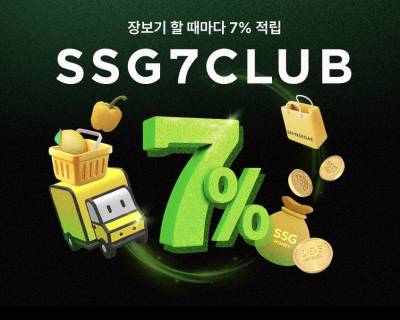- The Search for a Candidate
The Technologist The Search for a Candidate The national polls don't reflect it, but in one sense john mccain is the clear front runner in the presidential race: he leads in search-engine ads. When you type McCain's name into Google, alongside or above the standard search results you'll always get a text ad - a "sponsored link" - that leads you to a Web site
1.soliciting campaign contributions for the Arizona senator. What happens when you type "Giuliani" into Google? You get a paid link to the former New York mayor's site. But you also get a McCain ad.
2.Pundits like to
3.expound that we are in the middle of a YouTube election. But as some savvy political consultants have realized, this is really the beginning of the Google era of campaigning, where the battleground is the region of pixels alongside search results. Businesses already drop $7 billion a year in search ads, and politicians are finally figuring out that this vehicle is an ideal way to reach potential voters - and especially donors. "It's still fairly new territory for candidates," says Peter Greenberger, who heads the political advertising team at Google. But a potentially rich one. "People spend as much time online as they do watching television," he says. Campaign TV commercials - either grim and grainy attacks on opponents or
4.Pollyanna-ish portraits of a candidate and his or her
5.Stepford family - are easily ignored (and often despised) by couch potatoes. Search ads, on the other hand, appear when you are specifically looking for political information, since they are keyed to words that users type into a search field. Companies and candidates buy the actual words from the search company (Google, Yahoo, Microsoft) in an auction-style process. Those with winning bids get their ads - a couple of lines of text and a link to the advertiser's Web site - posted alongside the search results for the word. The bidding determines how much the advertiser pays each time a consumer clicks on the ad; nothing is charged until that "click-through" occurs, and when the specified number of clicks expires, the ad goes away. Advertisers can even "geo-target" their messages to people in specific regions. Those who're figured it out are cleaning up: McCain's people have stated that for every dollar they spend on this form of advertising, they bring in three or four bucks in contributions. After a slow start, candidates finally have begun exploiting this new medium. One sign that it's still early is that the bidding for the most crucial search terms - candidates' names and words that describe issues voters care about - hasn't reached cutthroat proportions. "Right now they're getting the words dirt-cheap," says Peter Leyden, director of the New Politics Institute, a think tank that helps Democrats. "It's amazing how many people don't buy their name and the name of their opponents. That's a no-brainer." A quick look at what pops up by typing in the names of major candidates bears him out. Most candidates do place an ad that shows up when people type their names into Google or Yahoo. But only a few have realized that buying "competitive words" - meaning your opponents' names - can be even more effective. "It's a tactic, but not
6.nefarious," says Eric Frenchman, a McCain consultant active in buying search terms. "Buying competitive words is a key to getting people information." Frenchman says that such ads often "Convert" - meaning that a well-placed ad will get donations from people searching for a rival's name who really are supporters of someone else, willing to contribute at the spur of the moment. The other obvious search words involve search terms people use when researching specific issues. Here again, McCain is busy; his people say that at various times they're bought 10,000 different words. But other candidates are active, too, sometimes appearing in surprising places. Who shows up when you type in "stop global warming"? Bill Richardson! Giuliani pops up with "
7.flat tax" and "illegal immigrant." But when I tried "universal health care," nothing from any candidate came up. Vary it a little by typing "health care reform" and you get a paid link to ... John McCain. As this medium evolves, you can expect dirty tricks like "click fraud," which is the practice of methodically clicking on an ad link to drain the advertiser's kitty. And then there's the question of negative search ads. The search companies have standards for ad content, but it's unclear how this is applied to political speech. Can you place an ad calling someone a
8.crook? An adulterer? A liar? Before we resolve those questions, the political action will likely spread to social networks, where advertisers can target users by their personal interests and political affiliation. "I can see targeting conservative Facebook users in South Carolina who have guns," says Republican political consultant David All. Next time around: the Facebook election.
1.모금 웹사이트가 뜬다. 구글에서 ‘줄리아니’를 검색하면? 역시 스폰서 링크로 전 뉴욕시장이었던 줄리아니의 웹사이트가 뜬다. 차이점은 옆에 매케인의 광고도 함께 뜬다는 것이다.
2.학자들은 우리가 유튜브(미국 UCC 웹사이트) 선거의 한복판에 있다고 즐겨
3.설명한다. 하지만 눈치 빠른 정치 컨설턴트들은 구글이야말로 선거전의 요충지임을 알아챈다. 격전지는 바로 검색 목록의 측면 공간이다. 기업체들은 이미 검색광고에 1년에 70억 달러를 쏟아 부었고, 정치가들도 마침내 이 광고가 잠재적인 유권층을 공략하는 이상적인 방법이라는 사실을 깨달았다. “후보들에겐 꽤 새로운 영역”이라고 구글의 정치 광고 팀장을 맡은 피터 그린버거가 말했다. 하지만 발전 가능성은 크다. “사람들은 TV 시청 시간과 같은 시간을 인터넷에서 보낸다”고 그는 설명했다. TV 유세 광고는 상대 후보를 무자비하게 깔아뭉개거나 후보 가족을
4.대책없이 낙관적인
5.이상적 가정으로 묘사해 시청자들에게 종종 무시당하거나 웃음거리가 되곤 했다. 한편 검색광고는 이용자가 정치 관련 정보를 찾을 때에만 뜬다. 검색란에 입력하는 단어에 따라 나타나기 때문이다. 기업과 후보들은 경매 절차를 통해 검색기업(구글, 야후, 마이크로소프트)에서 단어를 구입한다. 가장 높은 입찰자가 광고 자리를 얻는다. 두어 줄의 문구와 웹사이트 링크가 해당 단어의 검색 결과 측면에 위치한다. 경매 과정에서 클릭당 광고료가 책정된다. 실제 클릭 전에는 광고료가 부과되지 않으며, 정해진 클릭 수를 채우면 광고를 내린다. 원한다면 광고를 특정 지역의 사람들에게 “지리적으로 한정”시킬 수도 있다. 일찍 뛰어든 이들은 벌써 쏠쏠한 수익을 올린다. 매케인 선거본부는 검색 광고에 1달러를 지출할 때마다 3~4달러의 후원금이 들어온다고 밝혔다. 다른 후보들도 이 새로운 광고 시장에 눈을 돌리기 시작했다. 아직은 초창기다. 후보들의 이름이나 유권자들이 중시하는 주제어 같은 가장 기본적인 검색어의 경매도 치열한 수준이 아니기 때문이다. “지금은 헐값에 단어를 구입한다”고 민주당 측 정책연구소 뉴폴리틱스인스티튜트의 피터 레이든 소장이 말했다. “자신의 이름이나 상대 후보의 이름을 사지 않는 후보가 얼마나 많은지 모른다. 절차가 간단한데도 말이다.” 주요 후보들의 이름을 검색했을 때 결과를 잠시만 봐도 그의 주장이 입증된다. 물론 대부분의 후보가 구글이나 야후에 자기 이름의 검색광고 정도는 설치했다. 하지만 훨씬 효과가 클지 모르는 “경쟁 단어”, 즉 상대 후보의 이름을 구입한 후보는 소수에 지나지 않는다. “일종의 책략이지만
6.악랄한 수법은 아니다”고 매케인의 자문가 에릭 프렌치맨이 말했다. 그는 검색 용어를 구입하는 데 적극적이다. “경쟁 단어를 사면 사람들에게 정보를 전달하는 데 아주 요긴하다.” 프렌치맨은 그런 광고가 종종 “전향 효과”를 가져온다고 말한다. 즉, 광고를 잘 심어두면 자신의 지지자가 아닌 유권자가 다른 후보의 이름을 검색하다가 그 광고를 보고 즉흥적으로 후원하는 경우가 있다는 말이다. 특정 주제를 조사할 때 사람들이 이용하는 검색어도 중요한 광고 대상이다. 매케인은 이 쪽에서도 활약이 대단하다. 수차례에 걸쳐 1만 개의 단어를 구입했다고 측근들이 밝혔다. 하지만 다른 후보들도 적극성을 보이며 때때로 의외의 단어를 선택하기도 한다. “지구온난화를 멈춰라”를 치면 누가 나올까? 빌 리처드슨이다. “일률 과세”와 “불법 이민”을 치면 줄리아니가 나온다. 하지만 “보편적인 의료보험”을 검색하자 어떤 후보도 나타나지 않았다. 다시 “의료보험 개정”을 치자 매케인의 스폰서 링크가 등장했다. 검색광고 시장이 커가면서 “부정 클릭”이라는 수법도 등장했다. 광고주의 주머니를 털어내려고 광고 링크를 조직적으로 클릭하는 행위다. 또 비방 광고로 악용될 여지도 있다. 검색회사들은 광고 내용에 관한 기준을 마련했지만 정치 선전에 어떻게 적용될지는 미지수다. 한 정치인을 사기꾼이나 간통꾼, 거짓말쟁이로 묘사하는 검색 문장에 광고를 달아도 될까? 그런 문제들이 해결되기 전에, 정치 활동은 인맥 구축(SNS) 사이트들에도 퍼질 듯하다. 광고주들이 개인적인 취향과 정치적 성향에 따라 유권층을 구분해 접근할 수 있기 때문이다. “페이스북에서 사우스캐롤라이나의 총기를 소유한 보수적인 이용자를 대상으로 삼아봄 직하다.” 공화당의 정치 컨설턴트 데이비드 올이 말했다. 다음 대선에는 페이스북 선거판이 벌어질지도 모르겠다.
■ NOTES
1.soliciting campaign contributions for the Arizona senator. What happens when you type "Giuliani" into Google? You get a paid link to the former New York mayor's site. But you also get a McCain ad.
2.Pundits like to
3.expound that we are in the middle of a YouTube election. But as some savvy political consultants have realized, this is really the beginning of the Google era of campaigning, where the battleground is the region of pixels alongside search results. Businesses already drop $7 billion a year in search ads, and politicians are finally figuring out that this vehicle is an ideal way to reach potential voters - and especially donors. "It's still fairly new territory for candidates," says Peter Greenberger, who heads the political advertising team at Google. But a potentially rich one. "People spend as much time online as they do watching television," he says. Campaign TV commercials - either grim and grainy attacks on opponents or
4.Pollyanna-ish portraits of a candidate and his or her
5.Stepford family - are easily ignored (and often despised) by couch potatoes. Search ads, on the other hand, appear when you are specifically looking for political information, since they are keyed to words that users type into a search field. Companies and candidates buy the actual words from the search company (Google, Yahoo, Microsoft) in an auction-style process. Those with winning bids get their ads - a couple of lines of text and a link to the advertiser's Web site - posted alongside the search results for the word. The bidding determines how much the advertiser pays each time a consumer clicks on the ad; nothing is charged until that "click-through" occurs, and when the specified number of clicks expires, the ad goes away. Advertisers can even "geo-target" their messages to people in specific regions. Those who're figured it out are cleaning up: McCain's people have stated that for every dollar they spend on this form of advertising, they bring in three or four bucks in contributions. After a slow start, candidates finally have begun exploiting this new medium. One sign that it's still early is that the bidding for the most crucial search terms - candidates' names and words that describe issues voters care about - hasn't reached cutthroat proportions. "Right now they're getting the words dirt-cheap," says Peter Leyden, director of the New Politics Institute, a think tank that helps Democrats. "It's amazing how many people don't buy their name and the name of their opponents. That's a no-brainer." A quick look at what pops up by typing in the names of major candidates bears him out. Most candidates do place an ad that shows up when people type their names into Google or Yahoo. But only a few have realized that buying "competitive words" - meaning your opponents' names - can be even more effective. "It's a tactic, but not
6.nefarious," says Eric Frenchman, a McCain consultant active in buying search terms. "Buying competitive words is a key to getting people information." Frenchman says that such ads often "Convert" - meaning that a well-placed ad will get donations from people searching for a rival's name who really are supporters of someone else, willing to contribute at the spur of the moment. The other obvious search words involve search terms people use when researching specific issues. Here again, McCain is busy; his people say that at various times they're bought 10,000 different words. But other candidates are active, too, sometimes appearing in surprising places. Who shows up when you type in "stop global warming"? Bill Richardson! Giuliani pops up with "
7.flat tax" and "illegal immigrant." But when I tried "universal health care," nothing from any candidate came up. Vary it a little by typing "health care reform" and you get a paid link to ... John McCain. As this medium evolves, you can expect dirty tricks like "click fraud," which is the practice of methodically clicking on an ad link to drain the advertiser's kitty. And then there's the question of negative search ads. The search companies have standards for ad content, but it's unclear how this is applied to political speech. Can you place an ad calling someone a
8.crook? An adulterer? A liar? Before we resolve those questions, the political action will likely spread to social networks, where advertisers can target users by their personal interests and political affiliation. "I can see targeting conservative Facebook users in South Carolina who have guns," says Republican political consultant David All. Next time around: the Facebook election.
with JENNIFER ORDONEZ
검색광고 선거전 전국 설문조사에는 드러나지 않지만 미국 대통령선거에서 존 매케인은 분명 선두를 달린다. 적어도 검색엔진 광고에 있어서는 말이다. 구글에서 매케인의 이름을 치면, 보통 검색 결과의 측면이나 상단에 ‘스폰서 링크’라는 문자 광고가 뜬다. 클릭하면 애리조나 상원의원인 매케인의 선거 후원1.모금 웹사이트가 뜬다. 구글에서 ‘줄리아니’를 검색하면? 역시 스폰서 링크로 전 뉴욕시장이었던 줄리아니의 웹사이트가 뜬다. 차이점은 옆에 매케인의 광고도 함께 뜬다는 것이다.
2.학자들은 우리가 유튜브(미국 UCC 웹사이트) 선거의 한복판에 있다고 즐겨
3.설명한다. 하지만 눈치 빠른 정치 컨설턴트들은 구글이야말로 선거전의 요충지임을 알아챈다. 격전지는 바로 검색 목록의 측면 공간이다. 기업체들은 이미 검색광고에 1년에 70억 달러를 쏟아 부었고, 정치가들도 마침내 이 광고가 잠재적인 유권층을 공략하는 이상적인 방법이라는 사실을 깨달았다. “후보들에겐 꽤 새로운 영역”이라고 구글의 정치 광고 팀장을 맡은 피터 그린버거가 말했다. 하지만 발전 가능성은 크다. “사람들은 TV 시청 시간과 같은 시간을 인터넷에서 보낸다”고 그는 설명했다. TV 유세 광고는 상대 후보를 무자비하게 깔아뭉개거나 후보 가족을
4.대책없이 낙관적인
5.이상적 가정으로 묘사해 시청자들에게 종종 무시당하거나 웃음거리가 되곤 했다. 한편 검색광고는 이용자가 정치 관련 정보를 찾을 때에만 뜬다. 검색란에 입력하는 단어에 따라 나타나기 때문이다. 기업과 후보들은 경매 절차를 통해 검색기업(구글, 야후, 마이크로소프트)에서 단어를 구입한다. 가장 높은 입찰자가 광고 자리를 얻는다. 두어 줄의 문구와 웹사이트 링크가 해당 단어의 검색 결과 측면에 위치한다. 경매 과정에서 클릭당 광고료가 책정된다. 실제 클릭 전에는 광고료가 부과되지 않으며, 정해진 클릭 수를 채우면 광고를 내린다. 원한다면 광고를 특정 지역의 사람들에게 “지리적으로 한정”시킬 수도 있다. 일찍 뛰어든 이들은 벌써 쏠쏠한 수익을 올린다. 매케인 선거본부는 검색 광고에 1달러를 지출할 때마다 3~4달러의 후원금이 들어온다고 밝혔다. 다른 후보들도 이 새로운 광고 시장에 눈을 돌리기 시작했다. 아직은 초창기다. 후보들의 이름이나 유권자들이 중시하는 주제어 같은 가장 기본적인 검색어의 경매도 치열한 수준이 아니기 때문이다. “지금은 헐값에 단어를 구입한다”고 민주당 측 정책연구소 뉴폴리틱스인스티튜트의 피터 레이든 소장이 말했다. “자신의 이름이나 상대 후보의 이름을 사지 않는 후보가 얼마나 많은지 모른다. 절차가 간단한데도 말이다.” 주요 후보들의 이름을 검색했을 때 결과를 잠시만 봐도 그의 주장이 입증된다. 물론 대부분의 후보가 구글이나 야후에 자기 이름의 검색광고 정도는 설치했다. 하지만 훨씬 효과가 클지 모르는 “경쟁 단어”, 즉 상대 후보의 이름을 구입한 후보는 소수에 지나지 않는다. “일종의 책략이지만
6.악랄한 수법은 아니다”고 매케인의 자문가 에릭 프렌치맨이 말했다. 그는 검색 용어를 구입하는 데 적극적이다. “경쟁 단어를 사면 사람들에게 정보를 전달하는 데 아주 요긴하다.” 프렌치맨은 그런 광고가 종종 “전향 효과”를 가져온다고 말한다. 즉, 광고를 잘 심어두면 자신의 지지자가 아닌 유권자가 다른 후보의 이름을 검색하다가 그 광고를 보고 즉흥적으로 후원하는 경우가 있다는 말이다. 특정 주제를 조사할 때 사람들이 이용하는 검색어도 중요한 광고 대상이다. 매케인은 이 쪽에서도 활약이 대단하다. 수차례에 걸쳐 1만 개의 단어를 구입했다고 측근들이 밝혔다. 하지만 다른 후보들도 적극성을 보이며 때때로 의외의 단어를 선택하기도 한다. “지구온난화를 멈춰라”를 치면 누가 나올까? 빌 리처드슨이다. “일률 과세”와 “불법 이민”을 치면 줄리아니가 나온다. 하지만 “보편적인 의료보험”을 검색하자 어떤 후보도 나타나지 않았다. 다시 “의료보험 개정”을 치자 매케인의 스폰서 링크가 등장했다. 검색광고 시장이 커가면서 “부정 클릭”이라는 수법도 등장했다. 광고주의 주머니를 털어내려고 광고 링크를 조직적으로 클릭하는 행위다. 또 비방 광고로 악용될 여지도 있다. 검색회사들은 광고 내용에 관한 기준을 마련했지만 정치 선전에 어떻게 적용될지는 미지수다. 한 정치인을 사기꾼이나 간통꾼, 거짓말쟁이로 묘사하는 검색 문장에 광고를 달아도 될까? 그런 문제들이 해결되기 전에, 정치 활동은 인맥 구축(SNS) 사이트들에도 퍼질 듯하다. 광고주들이 개인적인 취향과 정치적 성향에 따라 유권층을 구분해 접근할 수 있기 때문이다. “페이스북에서 사우스캐롤라이나의 총기를 소유한 보수적인 이용자를 대상으로 삼아봄 직하다.” 공화당의 정치 컨설턴트 데이비드 올이 말했다. 다음 대선에는 페이스북 선거판이 벌어질지도 모르겠다.
■ NOTES
1.solicit: 간청하다, 거래[주문]를 원하다, 구걸하다. Ex. She was soliciting funds for the Red Cross(그녀는 적십자 기금을 요청하고 있었다). 2.pundit: 현인, 대가, 박식한 사람. Ex. The pundits disagree on the best way of dealing with the problem(그 문제를 처리할 최선의 방법에 대해 학자들의 의견이 다르다). 3.expound: 상세히 설명하다, 해석하다. Ex. She expounded her theory to her colleagues(그녀는 동료들에게 자신의 이론을 상세히 설명했다). 4.Pollyanna: 극단적인 낙천가. 미국의 작가 엘리노어 포터(Eleanor Porter)의 소설 ‘Pollyanna’의 여주인공 이름에서 유래했다. 5.Stepford family: 75년 스릴러 영화 ‘The Stepford Wives’에서 나온 표현으로 동화책에나 나올 듯한 완벽하고 이상적인 가족의 모습을 가리킨다. 6.nefarious: 사악한, 악랄한, 극악무도한, 발칙한. 7.flat tax: 일률 과세. 8.crook: 사기꾼, 도둑. Ex. He’s a small-time crook(그는 삼류 사기꾼입니다). |
ⓒ이코노미스트(https://economist.co.kr) '내일을 위한 경제뉴스 이코노미스트' 무단 전재 및 재배포 금지










![면봉 개수 → 오겜2 참가자 세기.. 최도전, 정직해서 재밌다 [김지혜의 ★튜브]](https://image.isplus.com/data/isp/image/2025/12/21/isp20251221000019.400.0.jpg)
![갓 잡은 갈치를 입속에... 현대판 ‘나는 자연인이다’ 준아 [김지혜의 ★튜브]](https://image.isplus.com/data/isp/image/2025/11/21/isp20251121000010.400.0.jpg)



당신이 좋아할 만한 기사
브랜드 미디어
브랜드 미디어
[속보]뉴욕증시, 사상 최고치 행진 제동…채권 강세 속 혼조 마감
세상을 올바르게,세상을 따뜻하게이데일리
이데일리
이데일리
“나도 피해자”…’불륜 의혹’ 숙행, 상간녀 소송 15일 선고
대한민국 스포츠·연예의 살아있는 역사 일간스포츠일간스포츠
일간스포츠
일간스포츠
"정부부처별 제각각 AX…AI정부, 칸막이부터 없애야"
세상을 올바르게,세상을 따뜻하게이데일리
이데일리
이데일리
[마켓인]임기만료 최윤범 회장…고려아연 이사회 어떻게 바뀔까
성공 투자의 동반자마켓인
마켓인
마켓인
고종성 제노스코 대표 “폐섬유증 신약 잠재 가치 2조 이상, 1상 후 기술이전 추진”
바이오 성공 투자, 1%를 위한 길라잡이팜이데일리
팜이데일리
팜이데일리